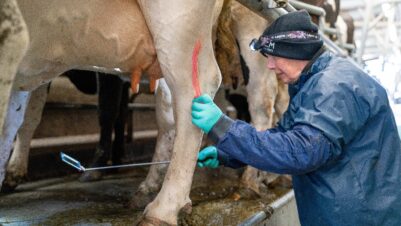The importance of sustainability in the relationship between the health and well-being of humans, animals and the environment is not underestimated by the veterinary industry. Indeed, many practices are looking to play their part in becoming more sustainable. Many of these steps are driven by the initiative of practices, but others are driven by legal imperatives. The changing legal requirements around the energy performance of practice buildings are important to keep in mind concerning lease negotiations over the coming years.
What is your energy performance rating?
One way of demonstrating sustainability could be to show how the practice operates from an energy-efficient building standpoint or to look to make energy-saving changes. While this is a useful starting point, any such changes should be carefully considered in light of the changing Energy Performance Certificate (EPC) regime.
Since 2018, landlords of commercial properties have been required to obtain an EPC with a rating of “E” or above before granting a new lease. More recently, in April 2023, this minimum E rating has also been mandated in relation to continuing existing leases. This has applied regardless of any assignment or lease renewal.
Raising energy-efficient building standards
The government has plans to advance the requirements even further, and if taken forward, this would require commercial properties to achieve a minimum EPC rating of ‘C’ from 2028 before being let
The government has plans to advance the requirements even further, and if taken forward, this would require commercial properties to achieve a minimum EPC rating of “C” from 2028 before being let, then increasing to a “B” rating from 2030. The ambitious targets driven by this regime would be admirable, but there would be notable implications for landlords and tenants in preparing for and responding to those changes, including those in the veterinary sector. We consider some potential implications for veterinary practices that could be useful to bear in mind as we approach 2028.
What does this mean for my practice?
While compliance with the updated statutory regime remains the responsibility of the landlord, we can expect the changes to have an impact upon the negotiation of lease terms and, importantly, for any costs to be potentially passed on to tenants. This could lead to tenants facing higher rents, increases on rent review or higher service charge provisions. Tenants are encouraged to keep in mind these factors when negotiating their lease terms and to revisit their current lease terms with these points in mind.
This could lead to tenants facing higher rents, increases on rent review or higher service charge provisions
The very process of having premises inspected and improvements carried out is likely to cause some disruption to practice. Of course, the more improvements that need to be undertaken, the greater the disruption can be expected to be, and this may be during surgery hours.
Due to the impact of alterations to premises, even if those relate to the permitted use of the practice, landlords may be more sensitive to works by tenants, which could potentially undermine energy improvement works. Therefore, landlords may more carefully scrutinise requests to make alterations. In turn, there could be an impact upon yielding up requirements at the end of the lease term.
Landlords may be more sensitive to works by tenants, which could potentially undermine energy improvement works
Landlords will want to prevent tenants from obtaining their own EPCs. This is because the most recent EPC applies for the purposes of the statutory regime, and so landlords will be cautious of their rating inadvertently slipping and giving rise to a requirement to carry out further works.
We can expect landlords who are able to rely upon exemptions from the EPC regime to look to retain their exemptions. For those premises within the regime, we can expect landlords to want to commit tenants to take on leases where landlords have gone to the time and expense of ensuring the premises meet the updated standards.







